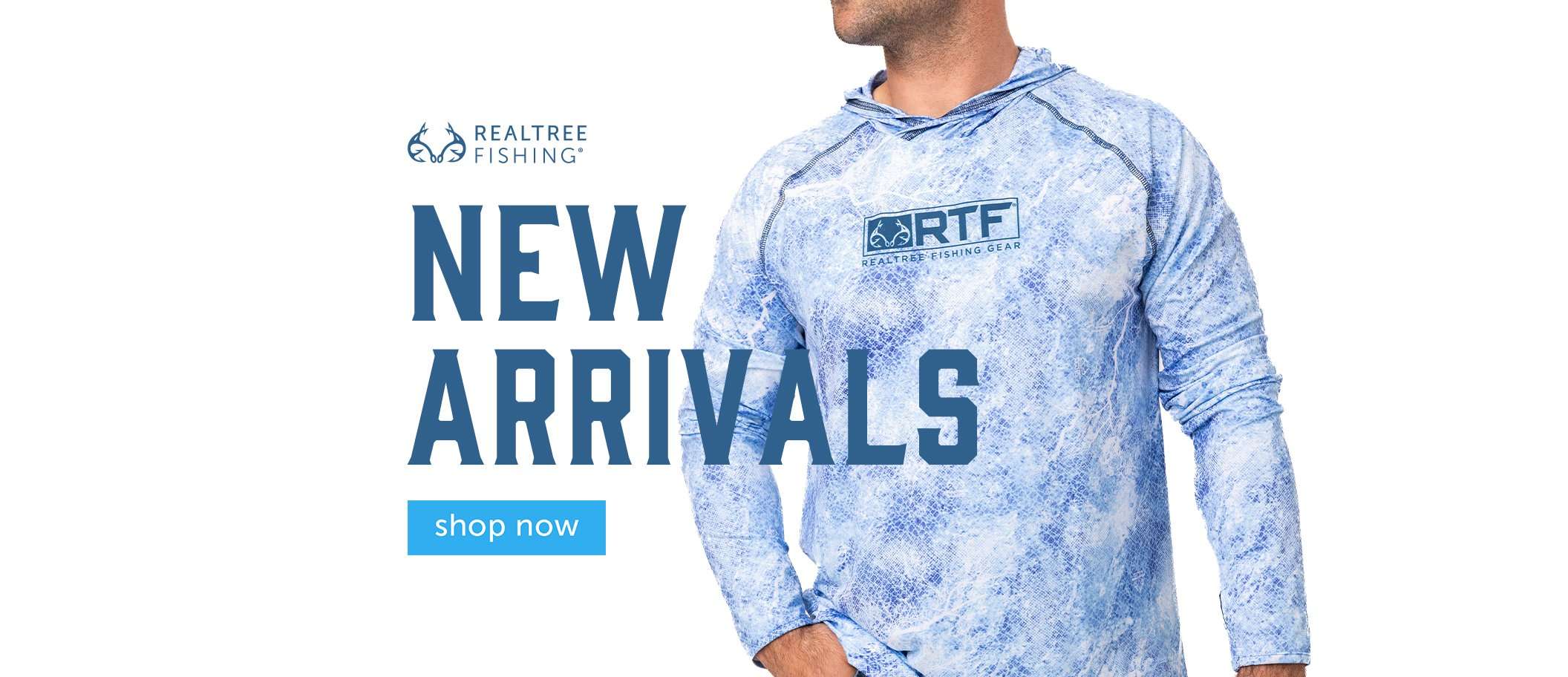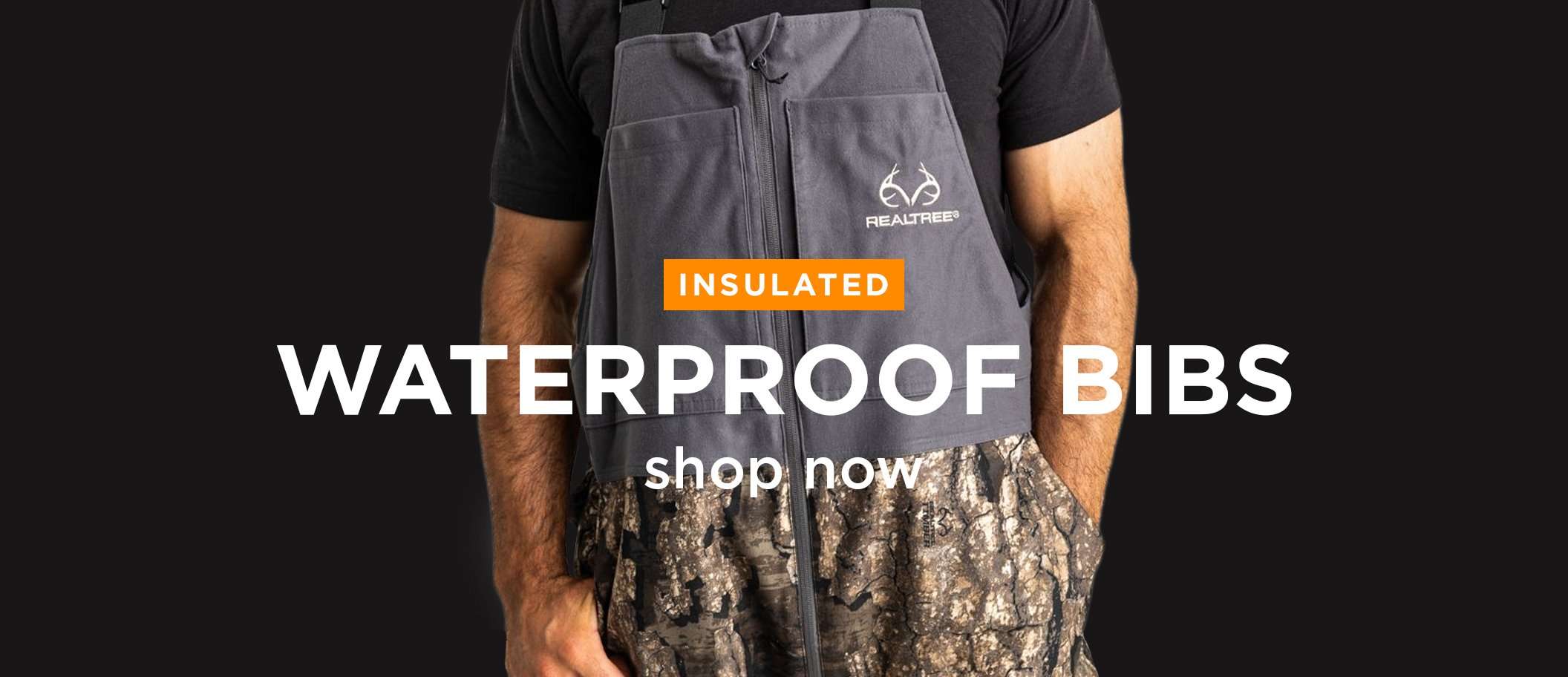If your only forays into the world of canned fish are cheap grocery salmon and tuna, you are missing out on what might just turn into your favorite easy field or stream lunch
I’m all about cooking a meal in the deer, turkey, or duck blind, or even packing along the gear to do fish tacos at the edge of the water. But sometimes you just need an easy snack to hold you over for a full day in the woods or on the water.
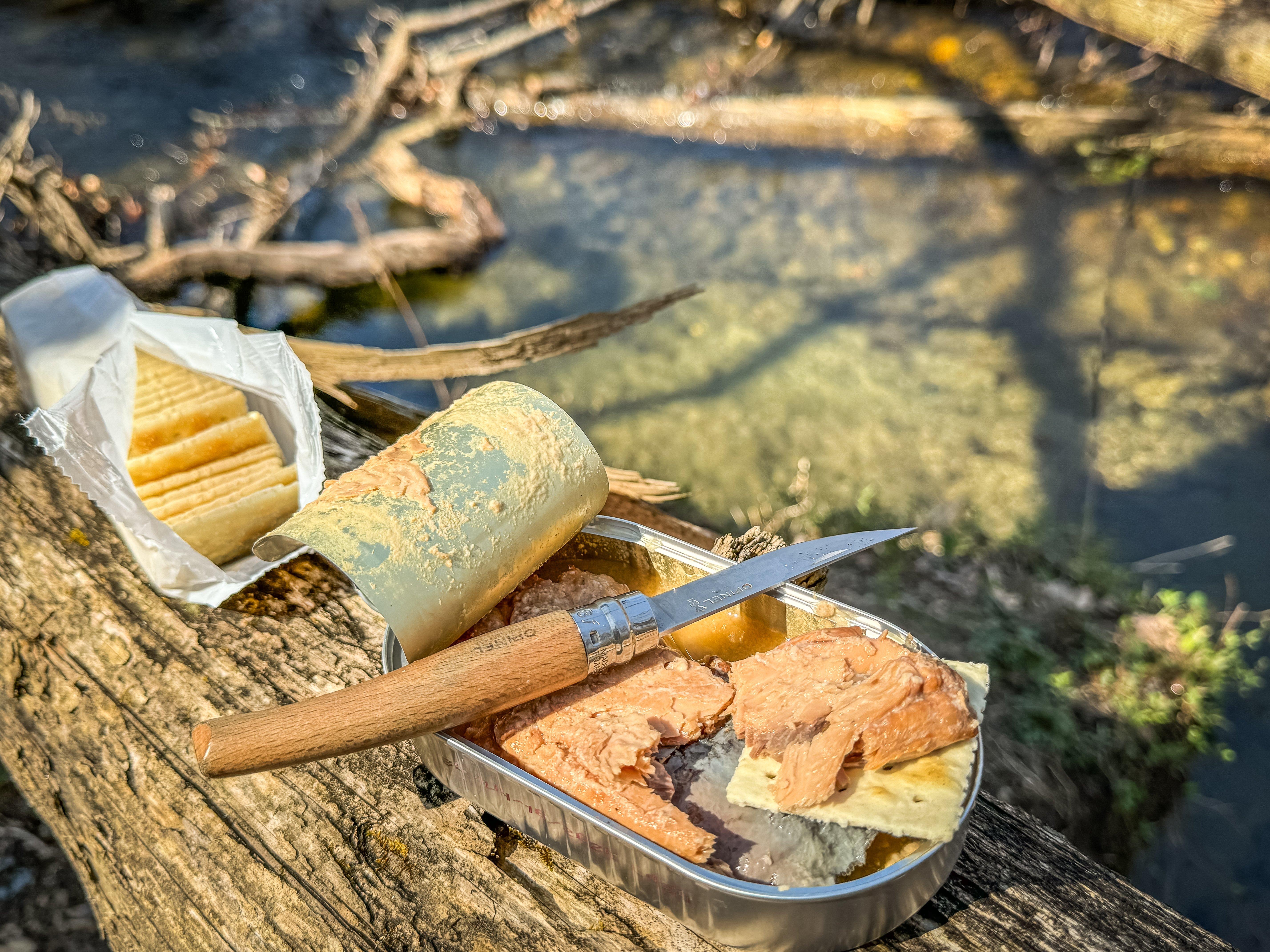
A pack of high-quality tinned fish and a sleeve of crackers makes for a fine streamside lunch.
One of my favorites is a sleeve of crackers and a tin of fish or two. Now, I hear you already. “Canned tuna sucks, cheap sardines are oily and too fishy.”
Yeah, I kind of agree. And if those are your only experiences with tinned fish, I can see how you might be turned off at the idea. Around since the late 1700s, canned fish was first and foremost a way to preserve excess catch without refrigeration. For a long time, it was simply a utilitarian way to keep fish shelf stable and safe to eat. But tinned fish has experienced kind of a resurgence in recent years. Manufacturers are starting to experiment with high-quality fish, smoked and fresh, and seasoning blends and methods that bring out the best in this piscine treat. This isn’t your grandfather’s can of sardines.
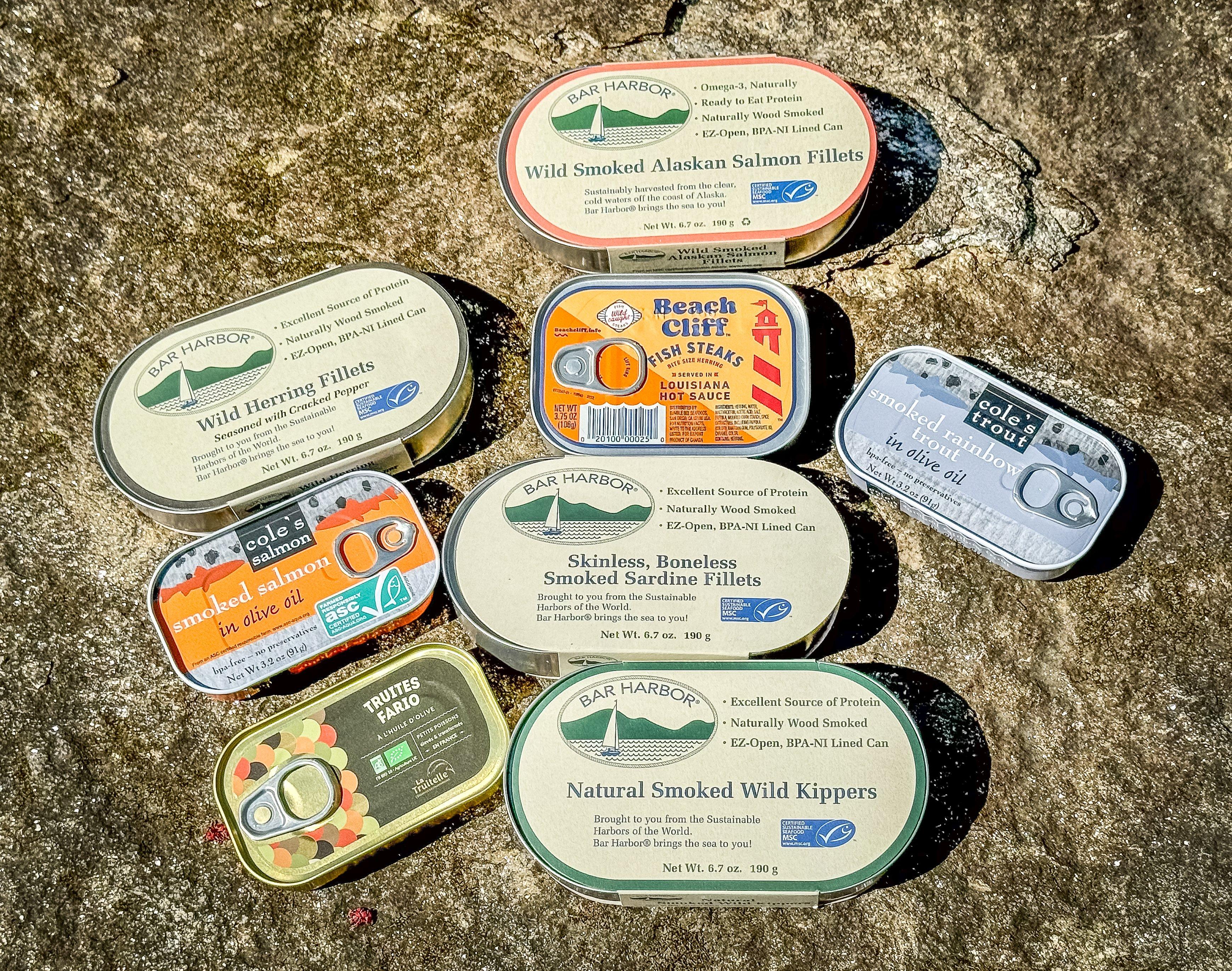
There has never been a better availability of quality canned fish products.
While I’ve been toting it along in the field and on the water for years, upgrades have resulted in tinned fish undergoing a boom in popularity. Folks are serving it at fancy parties arranged like charcuterie, imported brands are showing up on high-end food market shelves, and heck, tinned fish is even trending on TikTok.
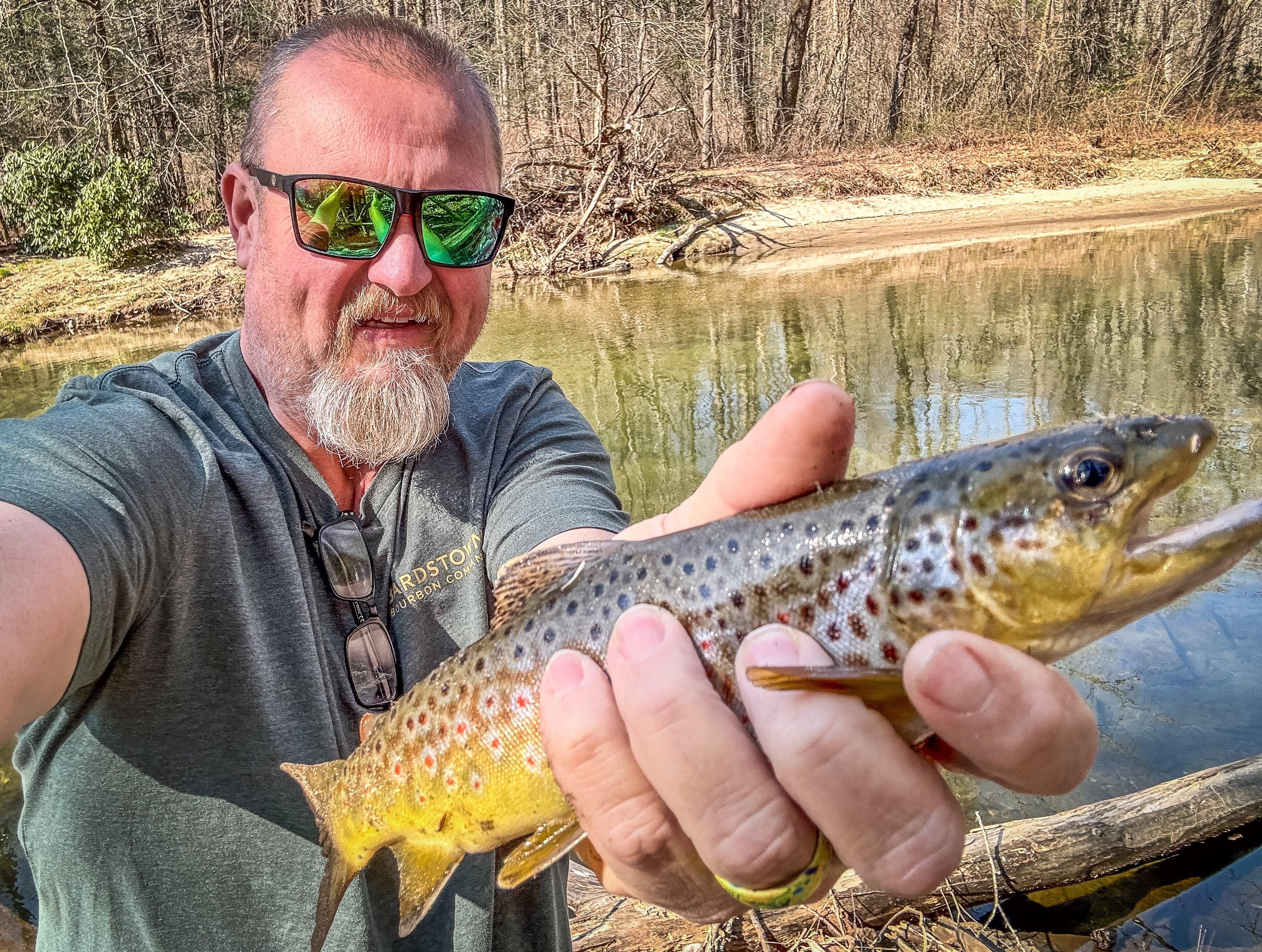
While tinned fish is experiencing newfound popularity for fancy dinner parties, where it really shines is on a stream, on a lake, or in the woods.
So what do you look for? For starters, if you don’t like a fish species when it is fresh, you probably won’t enjoy it when it's canned. Mackerel is a great example. For some, that oily, extremely fishy flavor is a turnoff. Choose something you would probably eat fresh when picking your cans. Next, tinned fish is packed in either water or oil. Water-packed brands tend to have lighter flavor and less sodium. Oil-packed has a more pleasant texture and more pronounced flavor. I tend to go with oil when given the choice.
I prefer to go with fish that are wild caught over farmed. It’s more expensive, but I think the flavor and texture is better. If you do go with a farmed variety, look for the Aquaculture Stewardship Council (ASC) label to ensure that the fish was farmed under the best conditions.
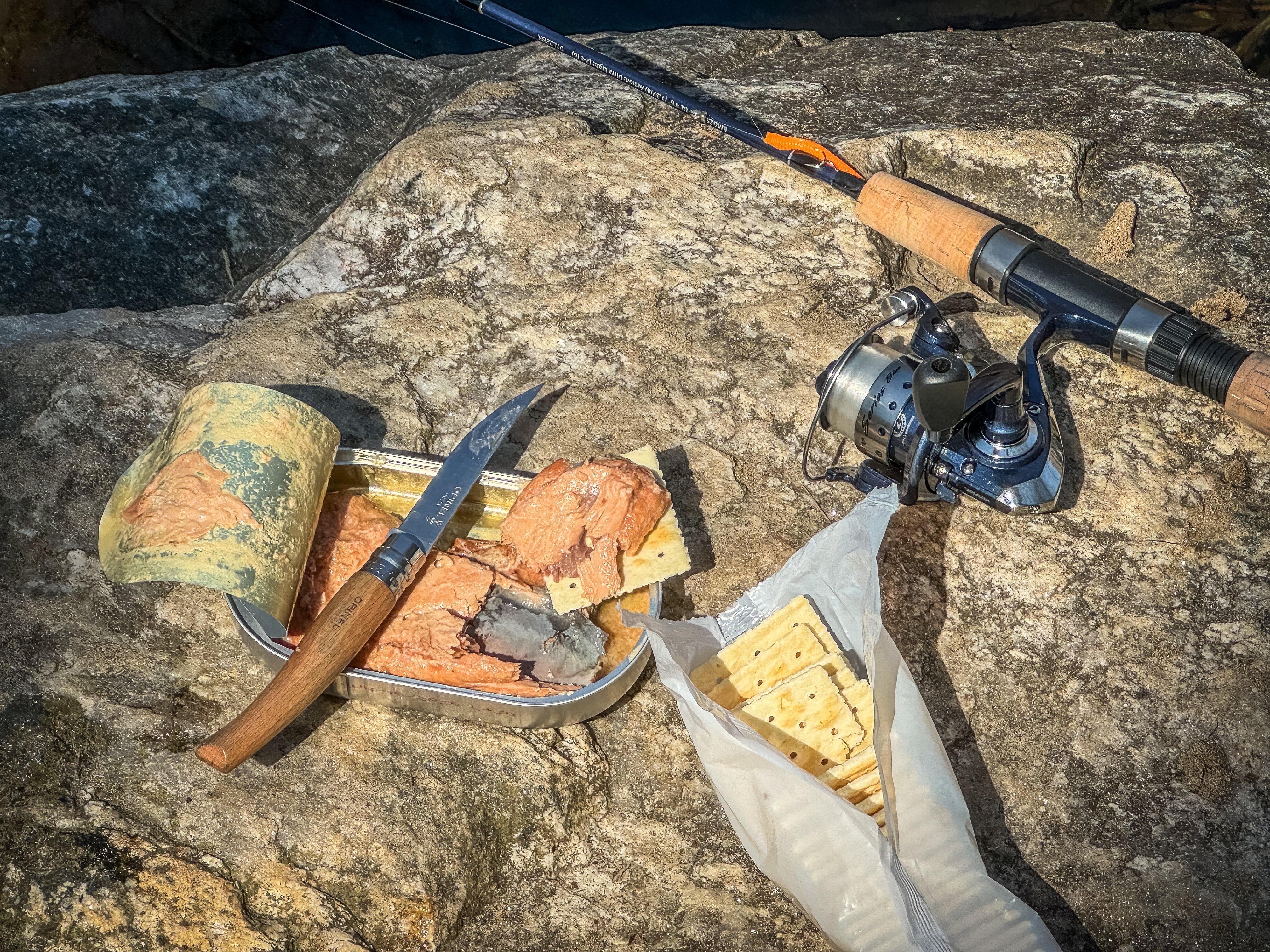
Look for wild-caught fish.
Many tinned fish are smoked prior to the canning process. If you enjoy the smoky flavor, give these a try. Some tinned fish leave the bones inside. The high temperature and pressure of the canning process make them completely safe to eat, but some people don’t like the texture or just the thought. If you fall into this category, be sure to look for boneless fillets on the label. Same goes for skin versus skinless. If you don’t like the taste or texture of fish skin, opt for skinless options.
Don’t stop at just fish. Octopus, squid, and all types of shellfish are also available tinned and make a pretty tasty lunch.
While I’ve eaten brands imported from all over the world, one of my favorites comes from the northeastern corner of the U.S. I first discovered the Bar Harbor brand on a trip to coastal Maine, and I’ve been eating them ever since. The Wild Smoked Alaskan Salmon remains one of my top picks when grabbing a can for an on-the-go lunch. It doesn’t hurt that they pack their fish in slightly larger cans than most other brands, making a single can turn into a pretty good lunch, even if I’m hungry.
How do you eat them? Simply open up a tin, pull out the sleeve of crackers you tossed into your fishing vest, tackle box, turkey vest, or backpack that morning, and go to town. I normally use my pocketknife to pull single servings of fish from the can without making a mess. Pop it on a cracker, top it with a little hot sauce if you packed any along (I almost always have a bottle of Crystal brand hot sauce somewhere on my person) and snack away. No cooking, no dish cleanup; just toss the empty can into the next trash receptacle you pass. If you are in the woods or on the water, I do suggest keeping an empty zip-seal bag on hand to hold the empty can until you find a place to dispose of it. You don’t want oil all over your fishing or hunting gear.
If you tried canned fish years ago and didn’t enjoy it, or if you have never tried it at all, take a look at the selection in larger grocery stores or online. I’ll bet you just might find something that sounds good to you. Next time you head afield, grab some crackers and give it a try. It might turn into a new favorite outdoor lunch.



